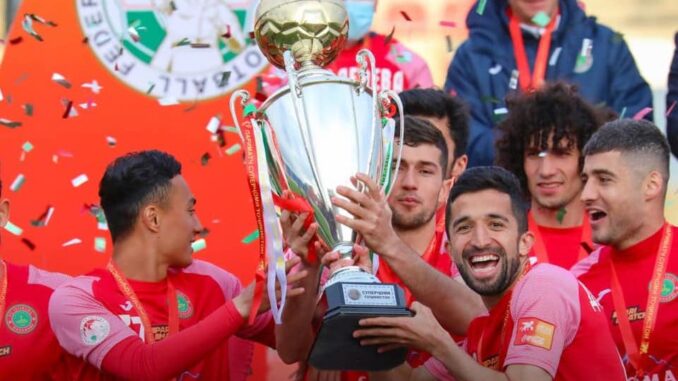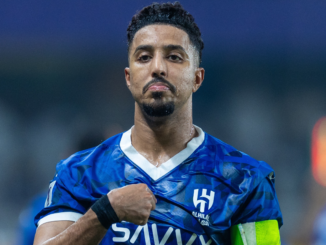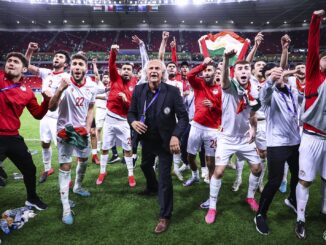
This week marks the return of this year’s AFC Champions League.
While it emerges later than planned, hosted in centralised venues across the region rather than the traditional home and away format, the new campaign does however, successfully roll out as planned the highly anticipated expansion of the tournament’s group stage from 32 teams to 40.
While concerns of watering down quality, or fears that a lopsided new format will tarnish the spectacle have gained some backing, the attempt to level the playing field across the whole of Asia, something the AFC initiated so successfully at international level at the last Asian Cup, remains a tantalising prospect for many observers who have long-called for greater club exposure for the so-called smaller nations of Asian football.
Alongside Jordan and India, Tajikistan will enter the AFC Champions League group stage for the first time in their history this week. It’s apt that their lightning rod for so many years FC Istiklol are their eventual history makers; even more timely given the club’s sustained challenge on the continent over the last decade.
Regrettably, the Dushanbe-based club is no fairytale story.
A club that only came into being as recently as 2007, partly to mark Tajik Independence (the club’s name directly translates as such), partly as a vanity project for the nation’s exuberant President’s son Rustam Emomali, has long been held as a team of the establishment, and their rise through the Tajik football pyramid demonstrated it’s nepotistic links.
Emomali, at only 20 years of age at the time, took on the unique dual role as the club’s managing director and star striker. The club romped to their debut second division title, without dropping a point, scoring a staggering 186 goals over 30 matches, a mighty average of over 6 goals a game.
Emomali was front and centre, if not in footballing talent, but in his impact off the pitch.
As is normal with many things in Tajikistan, government control and influence flows and cripples the domestic game, and with that comes power and money. It’s widely reported to this day that Istiklol are regularly favoured with more than the occasional questionable refereeing decision or bizarre logistical or organisational change to benefit the club in some way.
A few years on from forming, Istiklol were already taking over the top tier of Tajikistan, and with Emomali officially cutting ties with the club to take over as president of the Tajik Football Federation, he left his venture in high spirits.
From 2014, Istiklol won seven successive titles, losing only six domestic matches in that time. While governmental assistance isn’t as explicit these days, the clear ties have enabled them to grow from strength-to-strength, including the funnelling of domestic talent, and “development funding” – a brand spanking new European-spec stadium is due to open next year.
Their domestic dominance has almost rendered the Tajik championship redundant in recent years. Only occasionally finding residence from their provincial rivals, the capital club’s resilience and consistency is unparalleled within their borders.
That unerring mentality and ability to win, however, has overflowed and grown continentally; AFC President’s Cup champions in 2012, followed by final appearances in the AFC Cup in 2015 and 2017, the logical next step was always to compete in Asia’s showpiece tournament.
Despite finding favour in the AFC’s expansion initiative this year, Istiklol could very well have qualified under their own steam regardless. Last year’s preliminary victory away in Uzbekistan against Lokomotiv Tashkent set up their most prestigious match to date; away in Jeddah against Al-Ahli.
Instead of collapsing to Goliath, Istiklol went toe-to-toe with the Saudi giants, only succumbing to a stoppage time penalty, separating themselves from a historic group stage qualification.
While this time around, they haven’t been subjected to the stress of pre-qualification, don’t expect the Tajik champions to settle for merely making up the numbers. They’ll be eager to prove their worth at this level, and will realistically believe that they can qualify through a strong group featuring former champions Al-Hilal, former finalists Shabab Al-Ahli Dubai, and rising Uzbek side AGMK.
The evolution of Istiklol on the pitch is the key behind their prospects in the tournament. Despite domestic domination, the powers that be continue to demand continental success in addition, and that was key to Ukrainian coach Vitaliy Levchenko’s remit upon appointment this time last year.
The coach has repeatedly affirmed his high expectations, regularly switching formations and systems despite a winning formula being demonstrated week-on-week, with more than one eye always being focused on readying them for the continental challenge.
Transitioning from what was broadly becoming the Tajik national team by proxy a year or two back (which isn’t a bad starting point given their World Cup qualifying exploits of late), Levchenko’s additions to the squad in the past year will undoubtedly be the key difference makers come the ACL kick off.
The purchase of Ukranian defensive pair Oleksiy Larin and and Andriy Mischenko at the start of 2020 – the former of which went on to win the league’s Player of the Season earlier this year – solidifies what is a talented home based defence, but one that remains naive and erratic under pressure, especially with a very raw but nonetheless promising goalkeeper in Rustam Yatimov behind them.
Further up field, the return of Nuriddin Davronov, an Asian footballing nomad, who returns to Istiklol for a fourth time, is an experienced head in the centre of the field, to burden some of the more functional requirements of the team from his more expressive colleagues in attacking areas.
Alongside Davronov, the acquisition of Ryota Noma, the first Japanese player to feature in domestic Tajik football, is a handy, flexible peg that neatly fits in with the Champions League plus-one squad quota.
Attack is where Istiklol tend to impress; through the mercurial nous of Alisher Dzhalilov, a playmaker with vision and movement suited for such a stage, accompanying cousin and goalscoring machine Manuchekhr Dzhalilov (boasting a club record of 109 goals in 114 matches). Istiklol’s force is unquestionable.
The wildcard comes in the form of Dutch stiker Huseyin Dogan. A former youth international, Dogan, offers something the club have missed over the last few years; movement and physique (despite his stature), that equips Levchenko’s outfit with a useful focal point to set the tone. If he arrives with the right mentality to hit the ground running in Asia, he could be a devastating purchase.
The signings of Mischenko, Davronov, Noma and Dogan this winter has seen Levchenko roll out an attack focussed 3-4-3 formation for the first time this season, which reinforces their defensive worries of the past whilst retaining their attacking potency symbolic of the club’s recent history. A blend of flexibility, experience and raw talent makes this new setup an appetising prospect, but concerns are valid in how quickly they can all gel together.
Unlike their more established opponents, Istiklol have only just kicked off their domestic campaign – a comfortable 2-0 Super Cup victory over Cup champions Ravshan Kulob last week, in which new striker Dogan debuted, scored and collected the Man of the Match trophy, has been their only competitive outing. Aside from this, for the most part the club have been preparing for their debut AFC Champions League campaign with varying standards of friendlies in a pre-season camp in Turkey at the beginning of the year.
By no means will this faze their mentality, if it does indeed halt their tactical rhythm. As mentioned they’ve already travelled to Saudi Arabia and come within a minute of taking a winner-takes-all qualification match to extra-time, and the year before were 20 minutes away from progressing also against fellow opponents AGMK before losing out.
They are used to being the underdog, in which no one will be expecting anything from. With a manager that’s clued in, a recently bolstered squad and an expectant nation holding its breath, Tajik football’s first appearance at the top table of Asian club football may provide a surprise or two over the coming weeks.
Photo: FC Istiklol




